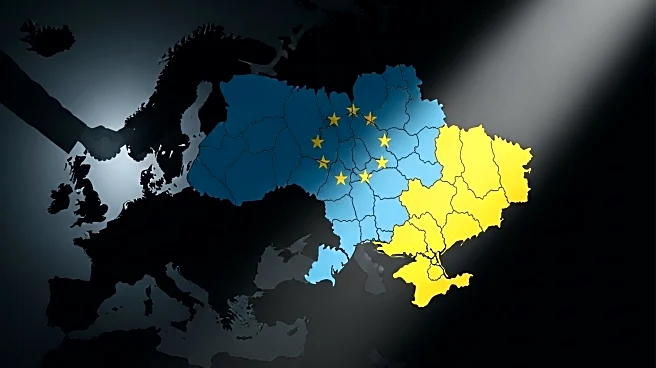What's Happening?
President Trump has suggested that Ukraine could reclaim all its territories with the support of the European Union and NATO. This statement was made following a meeting with Ukrainian President Volodymyr Zelenskyy at the United Nations General Assembly. Trump’s comments have been met with skepticism from military experts and officials, who argue that such a claim is unrealistic without a significant change in NATO's response to Russia's invasion. European officials, including EU diplomat Kaja Kallas, emphasized that the U.S. remains crucial to NATO and that Europe alone cannot shoulder the responsibility for ending the war.
Why It's Important?
The suggestion by President Trump marks a potential shift in U.S. foreign policy, indicating a reduced involvement in the Ukraine conflict and a shift of responsibility to European allies. This could have significant implications for NATO's strategic approach and the balance of power in the region. If Europe is expected to take on more responsibility, it may lead to increased military spending and strategic realignments within the EU. The skepticism from military experts highlights concerns about the feasibility of Ukraine regaining its territories without substantial U.S. support.
What's Next?
The next steps could involve diplomatic discussions between the U.S., EU, and NATO to clarify roles and responsibilities in supporting Ukraine. European nations may need to reassess their military commitments and strategies in light of Trump's comments. Additionally, Ukraine may seek further assurances and concrete support from its allies to bolster its defense capabilities against Russian aggression.
Beyond the Headlines
This development could lead to broader geopolitical shifts, with Europe potentially taking a more prominent role in global security matters. It also raises questions about the future of U.S. foreign policy under President Trump, particularly in relation to NATO and its traditional alliances. The ethical implications of shifting military responsibilities and the potential impact on civilian populations in conflict zones are also areas of concern.








